Can Foreigners Purchase Or Invest In The Australian Stock Exchange??
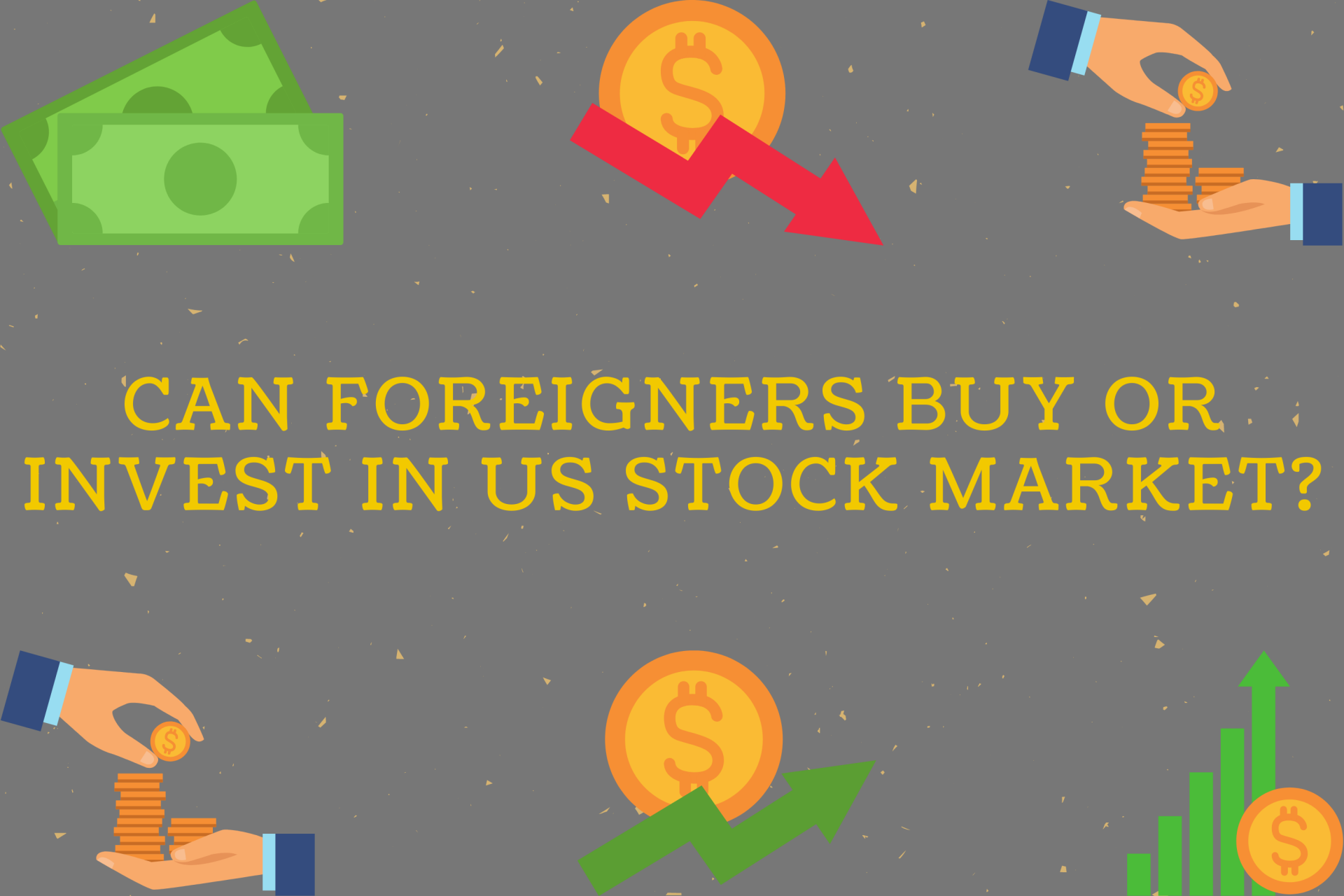 Can Foreigners Buy or Invest in the US Stock Exchange? Can Foreigners Buy or Invest in the US Stock Exchange? |
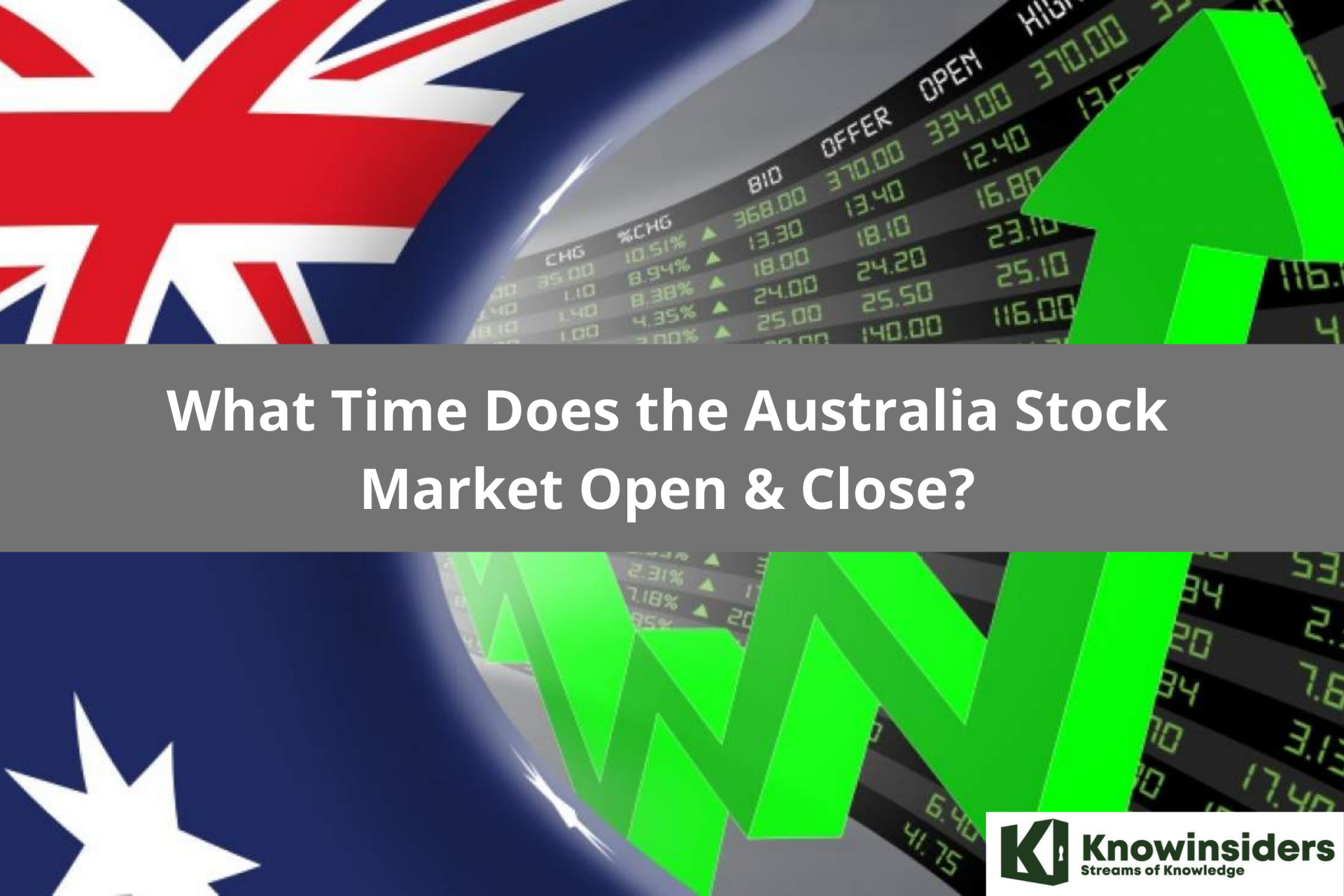 What Time Do the Stock Markets in Australia Open and Close?? What Time Do the Stock Markets in Australia Open and Close?? |
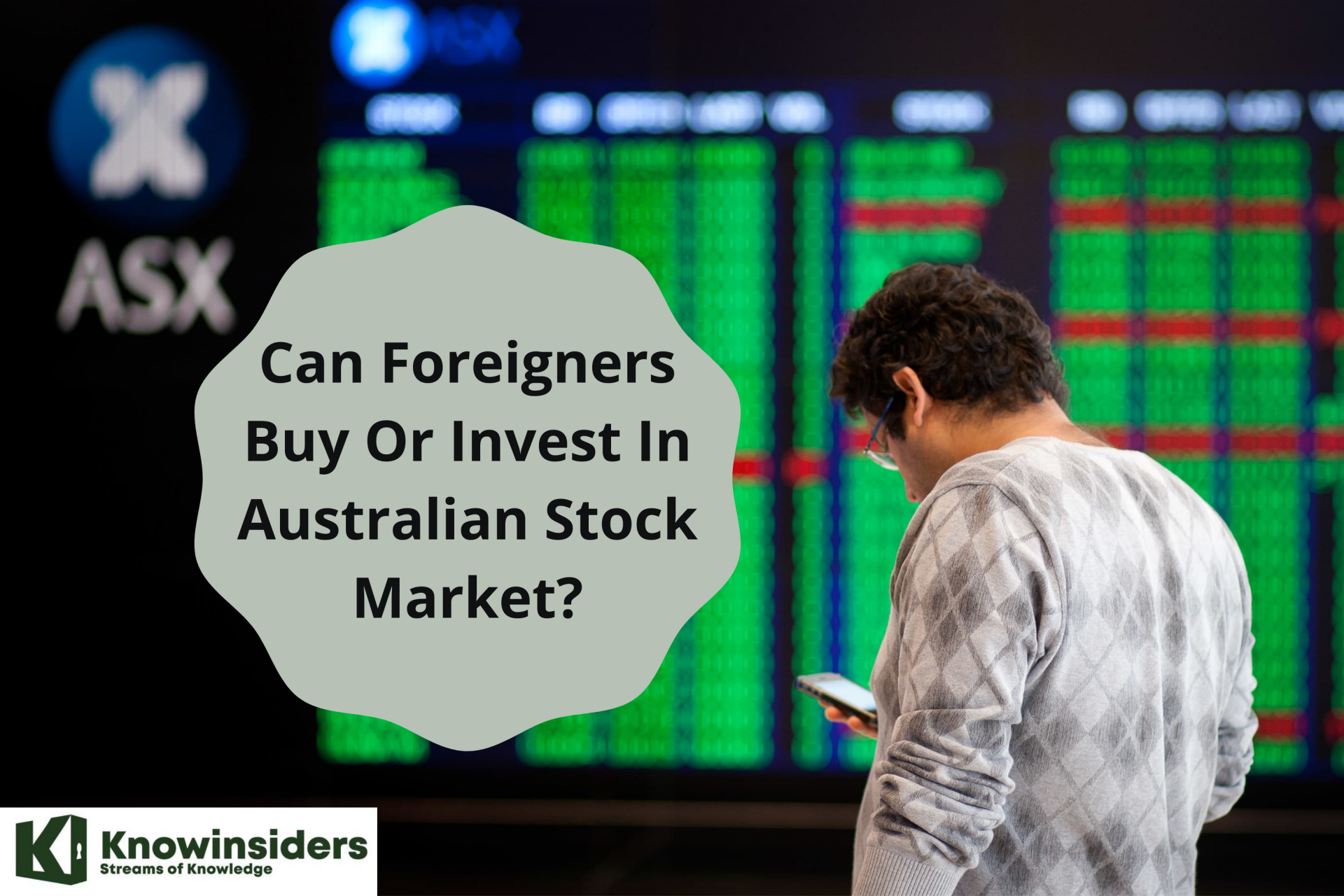 |
| Photo: Can Foreigners Buy Or Invest In Australia Stock Market? |
| Contents |
There are no restrictions on foreign investment in Australia, and non-Au residents who invest there typically only pay Australian tax on certain gains and income with a limited Australian source. There are a few things to be on the lookout for, including taxes, changes in currency, and additional dealing fees.
If you are considering investing in Australian stock market, below is all we think you should know!
An overview of the Australian Securities Exchange
In Melbourne, Australia, the first stock exchange was established in 1861. Australia's population had risen dramatically from just 430,000 in 1851 to 1.7 million just 20 years later in 1871, ten years after the nation experienced its first gold rush.
The exchange’s modern history began in 1987, over 125 years later, when the Australian Stock Exchange was incorporated as a result of legislation passed by the Australian Parliament. This market was renamed the Australian Securities Exchange in 2006.
As one of the top 20 stock exchanges in the world today, the ASX provides traders with a full suite of services, including listing, trading, clearing, and settlement services for stocks as well as a variety of other asset classes.
The ASX opens on Sundays around the beginning of the international trading week Eastern Standard Time (EST), and pre-market trading takes place from 7 to 10 am AEST (Australian Eastern Standard Time). The exchange's formal trading day begins at 10 a.m., or 12 a.m. Greenwich Mean Time (GMT), and ends at 4 p.m. AEST, or 6 a.m. GMT.
Can Foreigners Invest in the Australian Stock Market?
 |
| Can Foreigners Invest in the Australian Stock Market |
There are no restrictions on foreign investment in Australia, and non-Au residents who invest there typically only pay Australian tax on certain gains and income with a limited Australian source.
There are a few things to be on the lookout for, including taxes, changes in currency, and additional dealing fees. Our main message is straightforward if you're thinking about investing in Australia: get advice quickly.
Things to know before you buy shares in Australia
Australia's economy, which has grown steadily for 28 years in a row, is currently the 16th largest in the world. This expansion has also helped Australia's stock market, though the ASX is still regaining ground after suffering significant losses during the Great Recession of 2007–2008.
The Standard and Poor's (S&P) 500 Index, which serves as the broad benchmark index for the U.S. stock market, has grown more impressively than the ASX 200 benchmark index, which has increased modestly overall since early 2009.
Over the past 20 years, Australia has also developed into a global trade leader and the base for numerous high-tech businesses. When compared to domestic stocks, investing in foreign stocks may require a little more research, but if you choose the right investments, the benefits may outweigh the drawbacks.
As a starting point, our list of advantages and disadvantages of buying Australian stocks is provided below.
Pros
Here are some benefits of participating in the Australian stock market:
Open and globally integrated economy: Due to Australia's economy's complete integration with the global economy, the country is attractive to international investors as a place to place their money. According to the Australia Department of Foreign Affairs and Trade (DFAT), Australia has the sixth-highest GDP in the world, ranks first in Asia with $1.9 trillion in funds under management, and is the 14th-largest economy overall.
World’s top producer of gold: The world's top producer of gold, uranium, and iron ore is Australia, a country with a resource-based economy. You can indirectly own gold and other mineable assets thanks to the wide variety of mining stocks available on the ASX.
Stable political and economic climate: The free-market democracy of Australia encourages the growth of entrepreneurship and has long had a stable government. The workforce of the nation is highly educated and skilled, making it a dynamic investment destination.
Cons
Consider these drawbacks before investing in the stock market:
Global economic and stock market decline: All stock markets, including Australia's, would suffer adverse effects from a significant global economic downturn. Despite having a strong base in resources and commodities as well as demand from developing Asian markets, the Australian stock market suffered significantly during the Great Recession of 2008.
Resource and carbon tax implementation: The Australian government has thought about taxing its mining and other industries for resources and carbon. The country's capacity to entice foreign investment may suffer as a result, and the affected companies' profits may decline.
Economy highly reliant on commodities: Because Australia's economy is reliant on exporting natural resources, a period of falling commodity prices could have a negative effect on the country's economy and investments in stocks that are affected.
How To Invest in the Australian Stock Market For Foreigners?
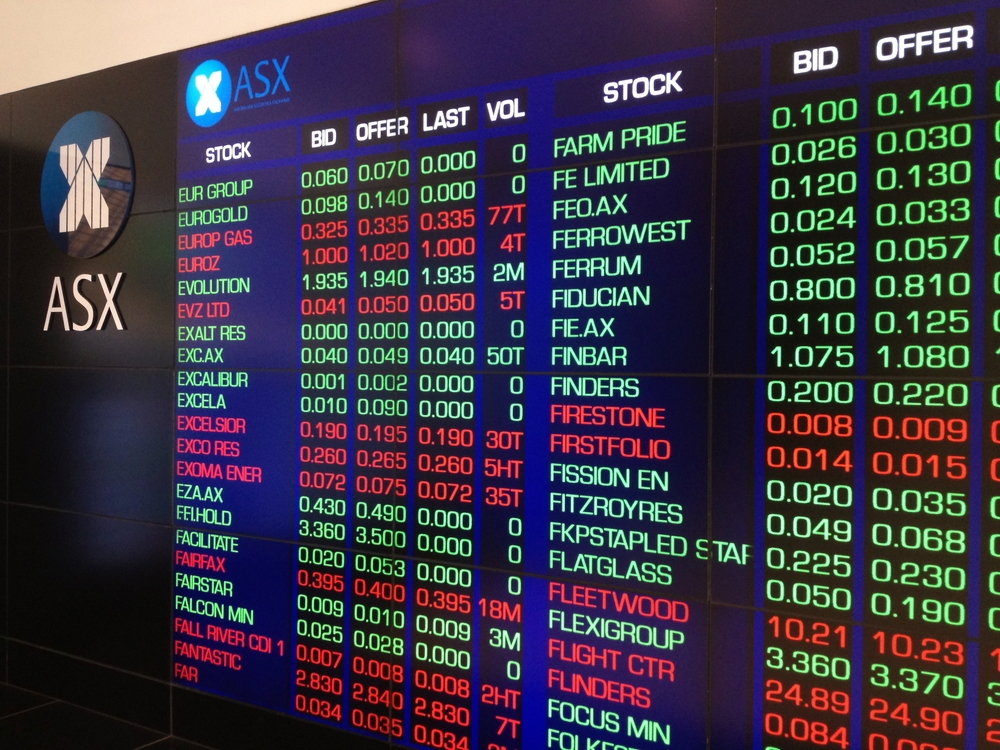 |
| Photo: coindesk |
Investors may not have access to industries with rapid growth in their home countries, but international markets can provide that access. Australia is one such market, with its robust mining and industrial manufacturing sectors.
1. Find the Right Broker
The most important thing when looking to gain exposure to the Australian stock market is to make sure you choose the right broker. Many brokers offer access to international stock exchanges, but this does not always include an Australian exchange.
The broker's offerings should match your needs before you open an account with any specific broker. By visiting the broker's website and perusing the investment products section, you can typically do this online. Use your phone if the broker you are thinking about does not have this section on its website.
The Australian Securities Exchange, which is located in Sydney, is the country's main stock exchange. Look for ASX stocks that are listed as investment products.
2. Open an Account
If you plan to invest in ASX stocks, you must open an account with the broker you've chosen. Normally, you can do this by downloading and manually filling out an application form or by doing it online. Your name, address, and age are among the pieces of personal information that all brokers will need from you. A broker will typically also ask for some sort of identity proof. You must mail or scan and email a copy of your most recent utility bill along with your driver's license or passport to complete this.
3. Fund Your Account
You must fund your account after receiving confirmation from your preferred broker that it has been set up. You should consider the minimum funding requirements of brokers when selecting one because many of them have them. Depending on how much risk you are willing to take, you can choose how much money to deposit into your account. Generally speaking, you ought to only make investments with funds that you can afford to lose. Once you've made this decision, you should put money in your account. With a credit card or debit card, you can typically do this immediately. A wire transfer from your bank will typically take two to three days.
4. Choose Your Stocks and Place an Order
You are able to make investments on the Australian stock market if your account is open and funded. Once you've done the required research and selected the stocks you want to buy, you can either place an order online or over the phone. To invest online, go to your trading platform's ASX section and purchase shares of the company of your choice. Call your broker to make an investment over the phone and tell him to purchase the shares on your behalf with the money in your account. The investment process is finished once the order is filled.
What Time Does the Australia Stock Market Open & Close?
How much does it cost to buy stocks?Share prices range from less than one cent to thousands of dollars per stock; however, there are some rules around how much you need to invest. Minimum investmentFor each brand-new ASX company you invest in in Australia, you must make a minimum investment of $500. Therefore, if the share price of Afterpay (APT) is $50, you would need to purchase at least 10 shares of APT stock if it was your first time purchasing. These guidelines vary based on the nation a stock is from. Even if it's your first time investing, you can put as little as a few cents into US stocks, for instance. You can purchase fractions of stocks rather than whole ones through some brokers. For example, if a share of Facebook is valued at $200, you could buy a tenth of a share for $20 rather than spending $200. Broker feesThe brokerage or commission fee is the other significant expense you need to consider. Every time you buy or sell stocks, your broker or share trading platform will charge you this fee. On most share trading platforms, or "discount brokers," brokerage fees range from $10 to $30, and for full-service brokers, they can range from $50 to $150. Brokers may also charge fees for account maintenance, custody (for US stocks), currency conversion (for foreign stocks), and inactivity (for US stocks). These are crucial factors to take into account because any broker fees you pay will lower your earnings and affect how much you invest per trade. |
Top Best Online Brokers in Australia
 |
| Photo: kiplinger |
1. CMC Markets
CMC Markets provides Australian traders with a wide selection of offerings with excellent pricing and its Next Generation trading platform, which is crammed with cutting-edge trading tools and charting, through its offices that are regulated in important global financial centers. For the previous eight years, CMC Markets has also been named Canstar's Broker of the Year.
2. IG
IG, a broker that was established in 1974 and is regarded as one of the most reliable in the world, provides Australian investors with low-cost share trading along with first-rate trading tools, research, tutorial videos, and access to more than 8000 foreign share CFDs.
3. CommSec
One of Australia's biggest online brokers, CommSec, offers access to 25 international exchanges for trading. Although CommSEC's share trading fees are high, it provides traders with a wide range of trading tools and market research.
4. Interactive Brokers
Although Interactive Brokers' complicated platform makes it unsuitable for novice investors, it is a global leader in trading and provides the low commissions that experienced traders seek. However, novice and inexperienced investors need to be aware of the various fees and minimums that Interactive Brokers charges.
5. Westpac
For Australians, Westpac is a more expensive choice. Although the broker offers free reports, a stock screener, stock recommendations, charting features, and the option for more premium research from Morningstar, it also offers access to 30 international exchanges.
6. Nabtrade
With customizable charting, third-party research from four different companies, real-time streaming, company stock and research, a global scanning tool, and other features, Nabtrade offers investors domestic and international trading at competitive prices. However, both the Apple App Store and Android Play Store give the mobile app for Nabtrade terrible reviews.
7. BellDirect
BellDirect offers average pricing, consensus research from 20 brokers, daily trading ideas, free conditional orders, and html5 charting technology if you only want to trade domestic stocks.
8. ANZ
ANZ is based on the well-known CMC Markets platform, so traders have access to the following resources: trading manuals to help novice traders, as well as trading platforms with live news updates, sophisticated charting, and a stock filter tool.
9. Amscot
Amscot provides traders with commissions that are below average when using the reputable IRESSTrader platform (a paid subscription is required). Additionally, traders have access to third-party sources for research, capital raising, and sophisticated portfolio reporting.
Should You Invest in Australian Stocks?One of the tenets of successful investing is diversification, and purchasing stocks from a different country offers a unique set of opportunities and risks. You should keep in mind that Australia's economy has avoided issues seen in other developed nations in part because of its proximity to developing Asian markets and its exports of valuable natural resources when investing in Australian stocks. While it appears that banking and natural resource stocks are the most popular Australian investments, some stocks in the nation's technology sector have experienced significant gains in recent months and should be the focus of any serious investor. The risk of carbon taxes being implemented that would negatively affect resource-based industries more could also be somewhat reduced by investing in Australian technology stocks. Even without a local or international brokerage account, there are several ways to purchase Australian stocks. Global Depositary Receipts (GDRs), American Depository Receipts (ADRs), and Exchange Traded Funds (ETFs) that can be accessed through stock exchanges based in the U.S. and U.K. make it simple to trade on the Australian stock market. |
 Can Foreigners Buy Or Invest In UK Stock Market? Can Foreigners Buy Or Invest In UK Stock Market? How to buy (invest in) stocks in the UK for non-UK residents? Read on to know the guidelines and tips for investing the stocks for ... |
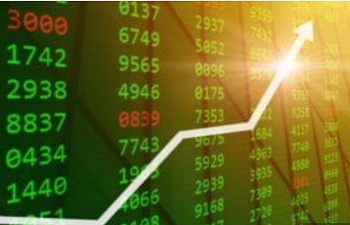 Top 10 U.S Most Promising Stocks Could Take Off in September Top 10 U.S Most Promising Stocks Could Take Off in September Since the Covid-19 bear market, stocks have rebounded incredibly. Many are screening companies with renewed optimism to find the best stocks to buy for September. |
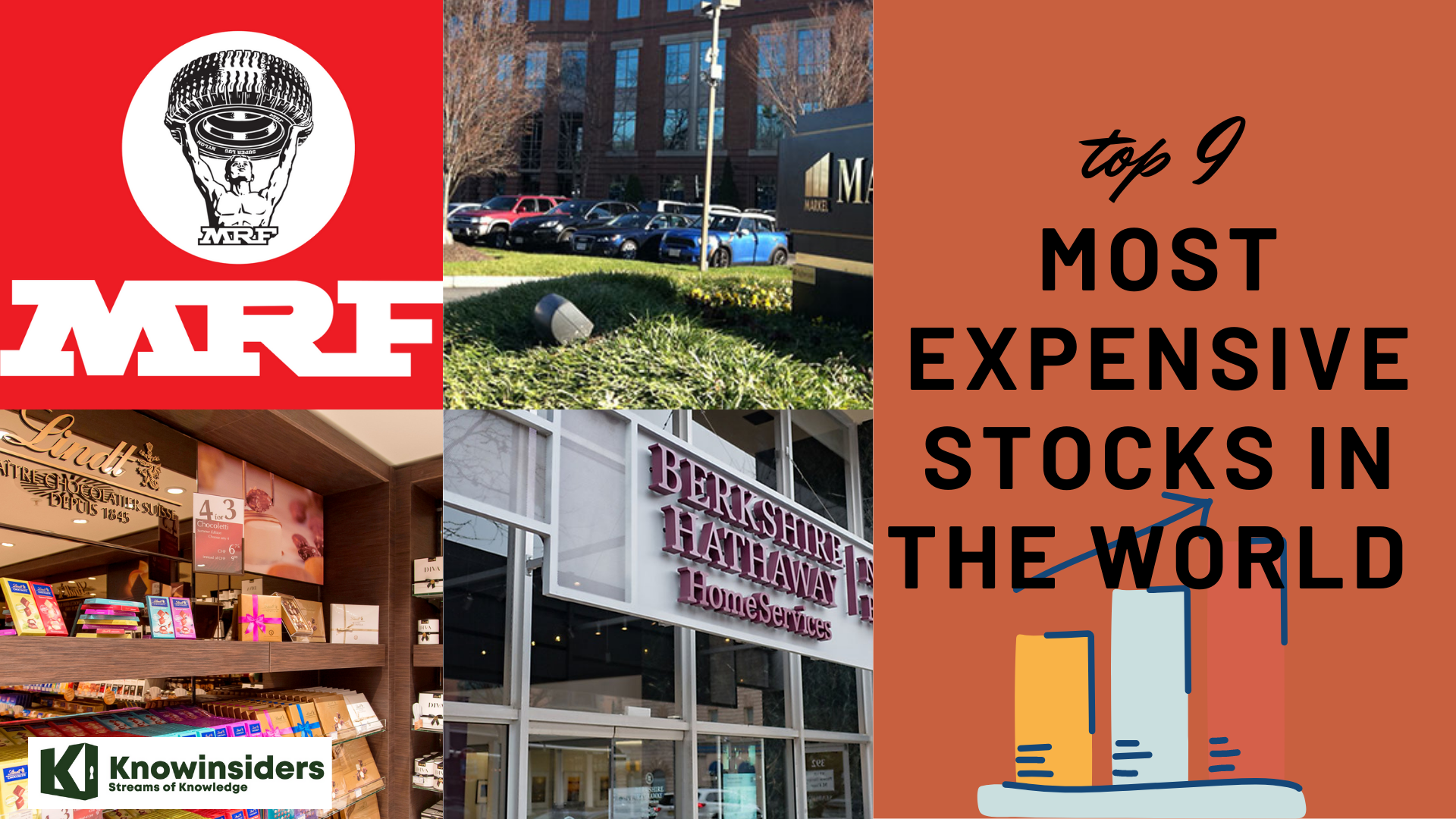 Top 9 Most Expensive Stocks In The World Top 9 Most Expensive Stocks In The World Stock price is an indicator of a company's market value, but the price of a share of stock will also depend on the number of ... |


























